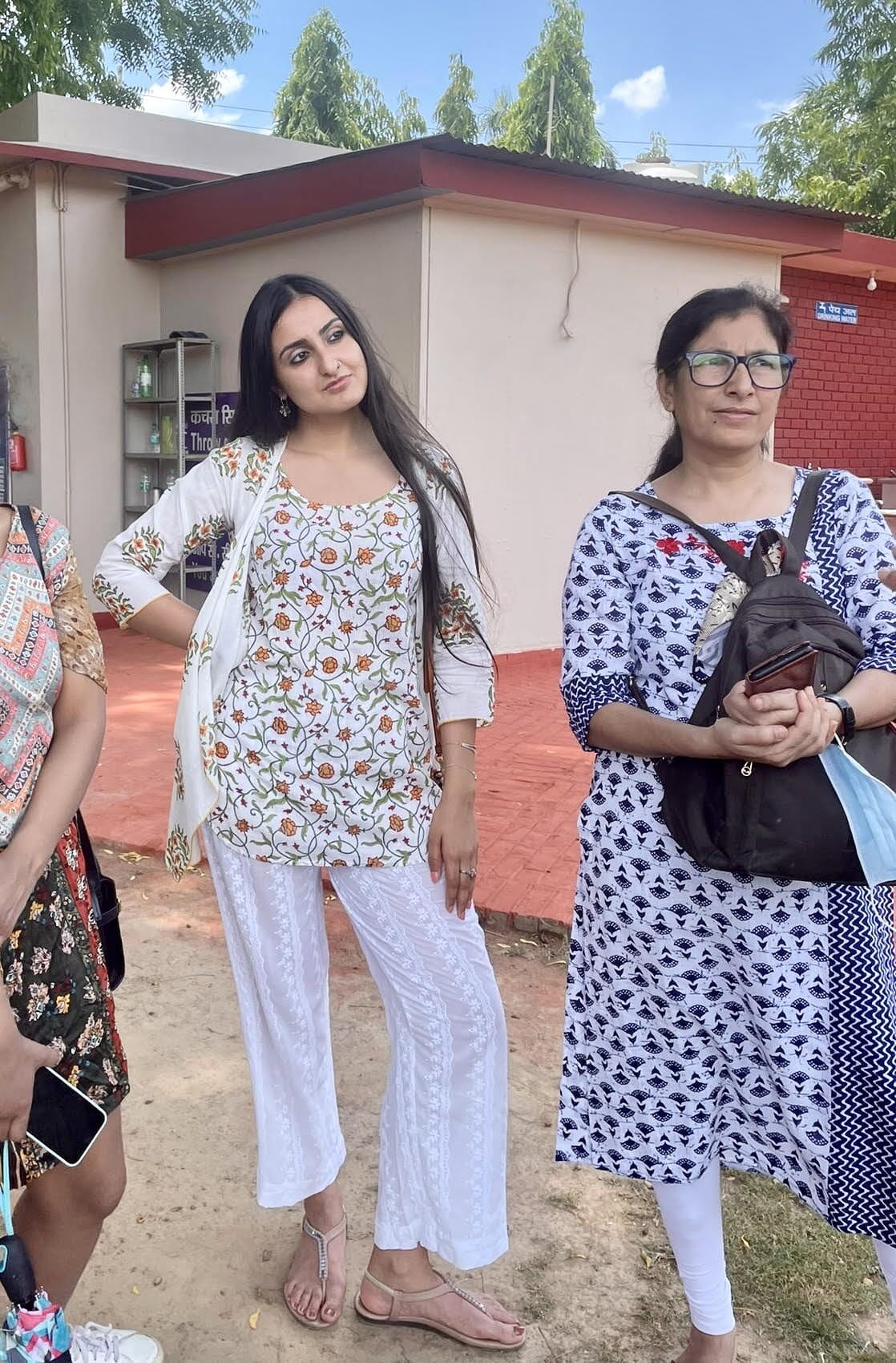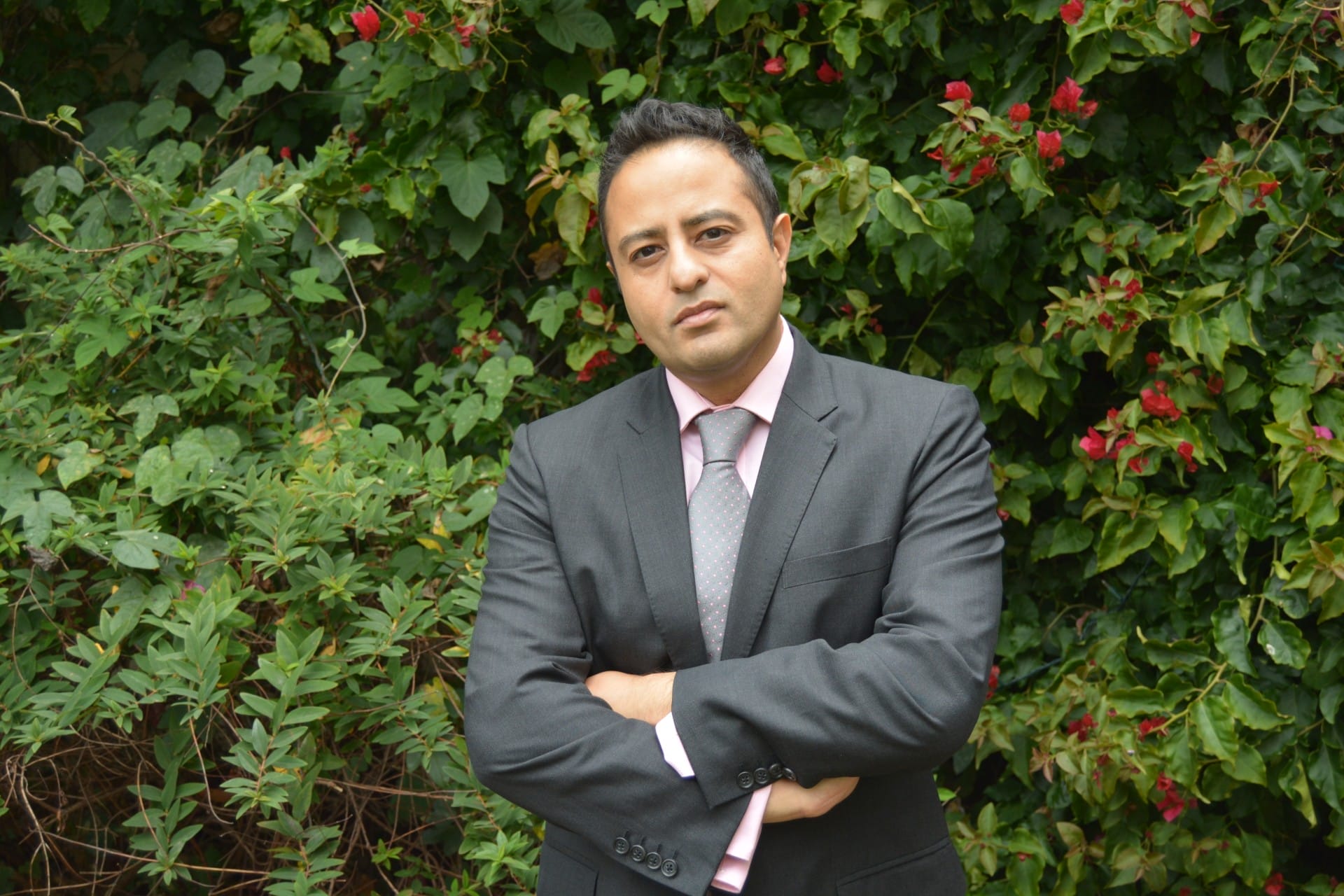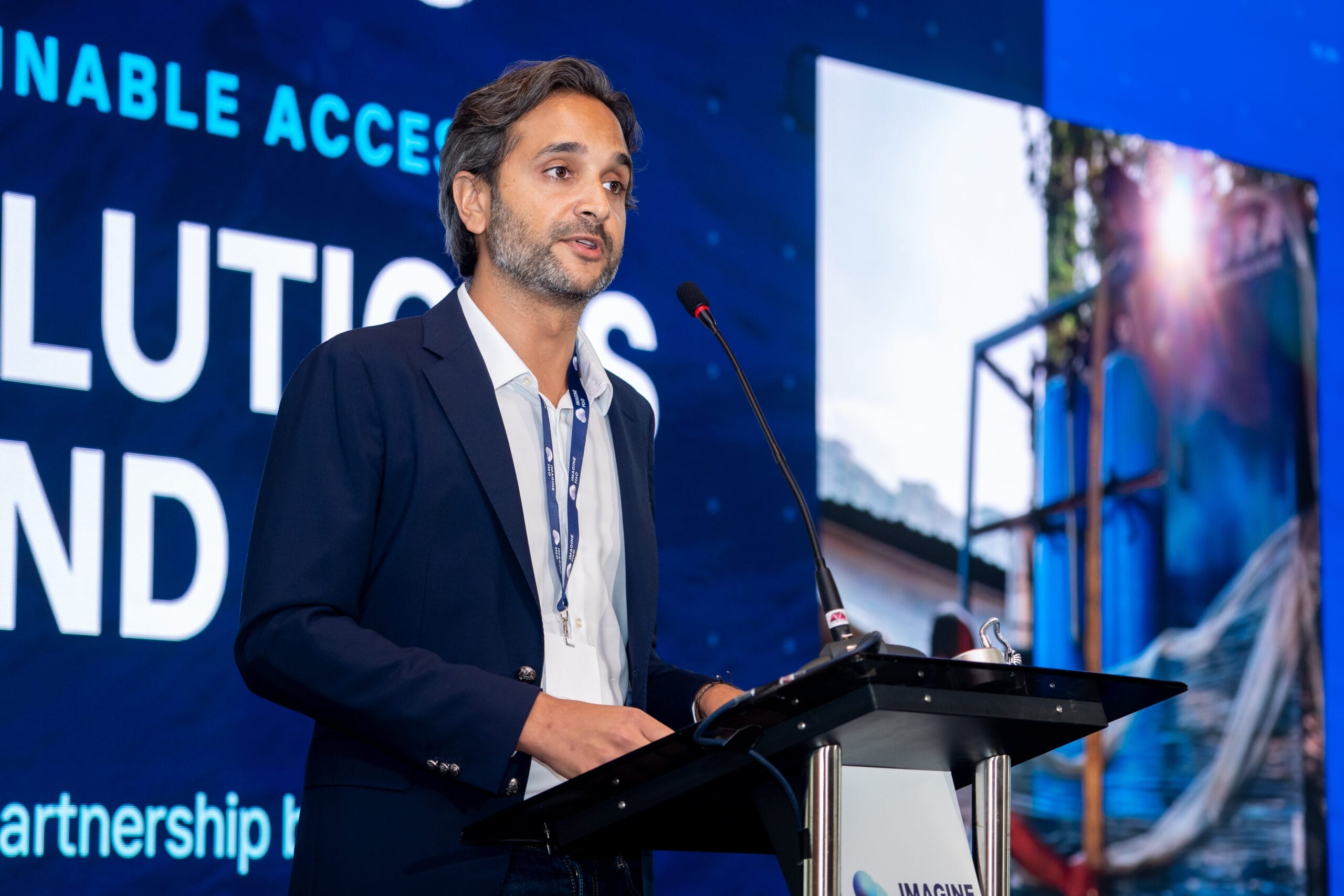From piloting an Indian water-monitoring technology that helps farmers keep an eye on fish production to mobilizing $5.7 billion in capital toward toilets and taps, Wharton alumni are using their skills for the greater good.
Although 71 percent of our planet is made of it, water isn’t the most obvious career path for business-school graduates. Jyotika Chandhoke G24 WG24 wasn’t familiar with the sector before she interned at the Burnt Island Ventures water fund this past summer. She says the School’s Wharton Energy & Climate club helped her form the friendships and network she needed to dive deeper into her newfound interest, and it was the recommendation of a classmate in business economics and public policy professor Arthur van Benthem’s class that led to her current role at the climate-change advisory firm Ad Hoc Group. “That community has allowed me to be in spaces to position me better in the field,” she says.

Jyotika Chandhoke G24 WG24 (left) during her Lauder Immersion in India.
Chandhoke’s Indian roots also influenced her climate career choice, as she grew up amidst air-quality issues and a water-sanitation crisis in New Delhi. “My drive stems from a simple fact: those suffering most from climate change often did the least to cause it,” she says. According to Water.org, 35 million people in India lack access to safe water. That statistic hits close to home for Rajash Sarin WG05, the organization’s global director for business development, who is from India and the United Kingdom. “I wanted to see how I could use finance to do something good in the world and help the people at the base of the pyramid that I saw growing up,” he says. His finance background allowed him to speak the language of the big commercial banks and show them that investing in water would benefit their bottom lines. “Our DNA is really about: How do we create financial markets that can then provide the scale and impact that charity alone could never do?” Sarin says.
Venturing into uncharted waters is also the MO of another alumnus in the space — Imagine H2O Asia managing director Nimesh Modak WG14. After various leadership roles at the water-startup accelerator, he founded its Asian hub in Singapore about five years ago. “Water tech entrepreneurs didn’t have the support or the services or the resources that entrepreneurs in other sectors have access to,” says Modak, who noticed an increase in inquiries from businesses and utilities in regions such as sub-Saharan Africa and Southeast Asia back in 2018. “Adoption of water solutions is hyperlocal, because you’re dealing with regulation, geology, hydrogeology, all these different things. We need to make sure you know customer behavior, cultural practices, regulation, etc., so we need to get closer to these markets.”
Modak chose Singapore as Imagine’s first hub outside the U.S. both for its proximity to underserved entrepreneurs and its ironic history in water stewardship — although surrounded by water, it has had to diversify its water sources due to freshwater scarcity, by tapping into reservoirs and water reuse. “We had a government that was supportive of innovation in water,” says Modak. “Very few countries in the world have that.”

Rajash Sarin WG05
In his global role, Sarin has seen Water.org expand over the course of his eight years with the nonprofit. Its WaterCredit Initiative operates as a pay-it-forward cycle: Partnerships with institutions fund small loans that locals can use toward placing a tap or toilet in their homes. After borrowers repay the loan (and according to Sarin, 98 percent of them do), that money goes to another family in need of water solutions. Sarin says they’ve gone from making half a million loans a year to several million a year.
“When you’re just trying to survive, you don’t have the money to take out a loan for water and sanitation that you can then repay, which is what we do. We help people at the household level,” says Sarin, adding that WaterCredit has dispersed about 16 million loans around the world.

Nimesh Modak WG14
Imagine H2O’s Innovation Pilot Fund works on a similar premise, but instead of loans for households, it offers (sometimes recoverable) grants for water startups. “It’s not just a startup accelerator,” Modak says. “We’re kind of a solutions accelerator, because we’re across the whole value chain, from sourcing to evaluation to this early stage of adoption cycle.”
With the backing of funders such as the Coca-Cola Foundation and the World Bank for Imagine H2O, it’s no surprise that many of its pilots have taken advantage of the latest technology — artificial intelligence. “AI machine learning is so advanced now that you could actually look at the likelihood of a pipe failure using that data,” says Modak.
But some in the water sector see AI as a wrench in their plans. As the Harvard Business Review suggests, higher demand for AI creates the need for more data centers, which in turn causes more freshwater to evaporate. Chandhoke recently attended Climate Week in New York City and said a common theme was how the technology will intertwine with the environment. “How are we going to manage power generation for AI? How are we going to build the transmission capacity? We don’t talk as much about the cooling that’s going to be needed,” she says. In her current role as senior associate at the Ad Hoc Group, she relies on the climate policy knowledge she acquired from her Lauder thesis to help companies go to market.
Sarin ultimately views AI as advancing Water.org’s mission: With increased transparency into water impacts, companies will look for ways to offset their usage. “They’re taking water out of the local environment, and they’re desperate to find ways to put water back into the local environment,” he explains. “We try and create opportunities for them to do that. Some of our biggest donors are tech companies, because they use so much water as part of their service.”
For those looking to enter the water space, Modak says, the opportunities are endless: “It’s so important that we spend more time addressing some of the challenges in the water sector, because it truly does touch every single sector.”
Check out these upcoming water and climate events: the Wharton Climate Prof event on October 16 as part of Climate Week at Penn, in partnership with Wharton’s Climate Center, and a faculty-led Lifelong Learning webinar, “Keeping up with ESG: New Research in Real Estate and Finance,” exclusively for alumni on October 30.

























